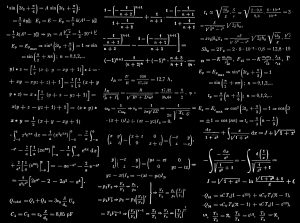Achieving Academic Excellence through Structured Learning

Are you a parent worried about your child’s struggles in mathematics? Do you want to help them achieve academic excellence and build a strong foundation in math? Look no further! Structured learning, complemented by abacus training, holds the key to unlocking your child’s potential as a math whiz. In this article, we will explore the importance of structured learning, the benefits of integrating abacus learning into it, and how it can transform your child into an accomplished math student. Get ready to witness the magic of structured learning and see your child excel academically.
The Importance of Structured Learning
Structured learning provides a clear roadmap for students to follow, offering them a well-defined pathway to acquire essential skills and knowledge. By breaking down complex concepts into manageable steps, structured learning helps students set achievable goals and understand the necessary steps to reach them. This sense of direction and purpose fosters a love for learning and ensures students stay on track towards academic excellence.
Consistency and standardization are crucial aspects of structured learning. By implementing a consistent approach to education, every student receives the same quality instruction. This ensures educational equity and guarantees that all children have access to equal learning opportunities. No child should be left behind when it comes to education.
Continuous assessment and feedback form an integral part of structured learning. Regular assessments help educators identify students’ strengths and areas for improvement. This feedback loop allows teachers to tailor their teaching methods to meet the individual needs of each student, ensuring personalized instruction and targeted interventions when necessary.
Engagement and motivation are vital for effective learning. Structured learning environments often incorporate interactive and engaging methods that spark students’ curiosity and enthusiasm. When students see the relevance and application of what they are learning, they become more invested in their academic success. By fostering active participation, structured learning keeps students engaged throughout their educational journey.
Integrating Abacus into Structured Learning
The abacus is a powerful tool that can be seamlessly integrated into structured learning, especially in mathematics. Here’s how abacus learning can enhance your child’s mathematical skills and contribute to their academic excellence:
-
Multisensory Learning: The abacus engages multiple senses – visual, auditory, and tactile. As children manipulate the beads on the abacus, they experience mathematics in a hands-on way. This multisensory approach helps solidify concepts in their minds, improving understanding and retention.
-
Mental Calculation Skills: Abacus training develops mental arithmetic skills, enabling children to perform calculations quickly and accurately. By visualizing the beads on the abacus, children learn to visualize numbers mentally, enhancing their ability to solve complex mathematical problems. These mental calculation skills boost their confidence in math and support their overall academic performance.
-
Building a Strong Numerical Foundation: The structured use of the abacus helps children develop a strong foundation in numeracy. Through structured lessons that gradually increase in complexity, children progress from basic arithmetic to advanced mathematical concepts. They learn to apply mathematical principles effectively, setting them up for success in more complex math topics.
-
Promoting Critical Thinking: Using the abacus encourages children to think critically and develop problem-solving strategies. As they manipulate numbers mentally and visualize calculations on the abacus, they enhance their analytical skills. These critical thinking skills are transferable across subjects, contributing to academic excellence in various disciplines.
Achieving academic excellence through structured learning, complemented by abacus training, is a game-changer for math kids. The structured approach provides students with a clear roadmap, ensuring they acquire the necessary skills and knowledge to excel academically. Abacus learning enhances mathematical abilities, promotes critical thinking, and builds a strong numerical foundation.
To unlock your child’s potential as a math whiz, consider enrolling them in SIP Abacus courses. SIP Abacus offers world-class skill development programs that aim to unlock the mental potential of children through fun learning methodologies. Their programs focus on developing skills in mathematics and overall cognitive development.
SIP Abacus teaches mental math skills using the abacus tool and visualization techniques. The curriculum is divided into Junior, Foundation, Advanced, and Grand Master modules, each tailored to different levels of proficiency. Small class sizes and interactive sessions ensure personalized attention for every child.
By completing the SIP Abacus program, children develop strong mental math abilities, improve focus and concentration, enhance overall intelligence, boost confidence, and acquire essential skills like visual memory and numerical ability. Studies have shown that children who complete the SIP Abacus program perform significantly better in math and reading at school.
Don’t wait any longer! Empower your child with the tools for academic excellence through structured learning and abacus training. Watch them unleash their full potential and become confident math kids. Enroll them in SIP Abacus today and witness their transformation into accomplished math students.



